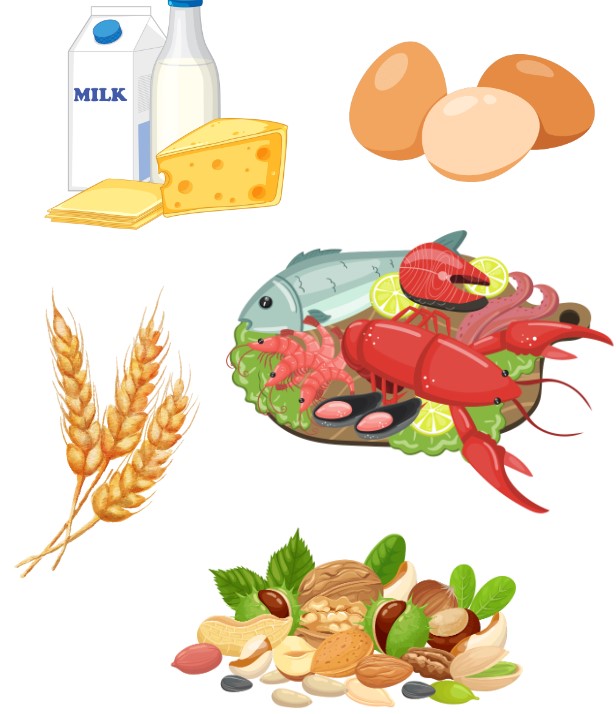Food Allergies in Toddlers: What You Need to Know
Food allergies in toddlers are an abnormal and often dangerous reaction of the immune system to certain foods. Although the exact cause of these allergies is not yet fully understood, it is common for children to outgrow them as they grow.
What are the symptoms?
Symptoms of a food allergy can range from mild to severe and may appear quickly after consuming the offending food. Some of the most common symptoms include:
- Digestive problems: Vomiting, diarrhea, abdominal pain.
- Skin problems: Hives, eczema, swelling.
- Breathing problems: Difficulty breathing, wheezing, coughing.
- Other: Swelling of the mouth, lips, or throat, dizziness, loss of consciousness.
In severe cases, a food allergy can trigger an anaphylactic reaction, a medical emergency that requires immediate attention.
What foods commonly cause allergies?
The foods that most often cause allergies in children are:
- Dairy: Milk, cheese, yogurt, butter.
- Eggs.
- Wheat.
- Soy.
- Peanuts.
- Nuts: Almonds, walnuts, hazelnuts, pistachios.
- Fish: Salmon, tuna, cod.
- Shellfish: Shrimp, lobster, crab.
However, any food can cause an allergy, although these are the most common.

How to prevent allergic reactions?
- Read labels: Always check food labels to identify allergens.
- Inform others: Inform family members, caregivers, and teachers about your child’s allergies.
- Carry a medical alert card: A medical alert card can be useful in an emergency.
- See an allergist: An allergist can perform tests to confirm allergies and develop a management plan..
What to do in case of an allergic reaction?
If you suspect your child is having an allergic reaction, follow these steps:
- Stay calm: Give emergency medication prescribed by your doctor, if available.
- Call 911: If the reaction is severe, call 911 immediately.
- Follow your doctor’s instructions: Follow your doctor’s recommendations for managing your child’s allergies.
Additional tips
- See a nutritionist: A nutritionist can help you plan safe, nutritious meals for your child.
- Join support groups: Connecting with other parents who have children with food allergies can be very helpful.
Remember, although food allergies can be worrisome, with the right information and care, you can help your child lead a healthy, happy life.
Reference:
https://texaswic.org/es/salud-y-nutricion/para-el-bebe/alergias-alimentarias
Contribution by Precious Moment Childcare, LLC.




